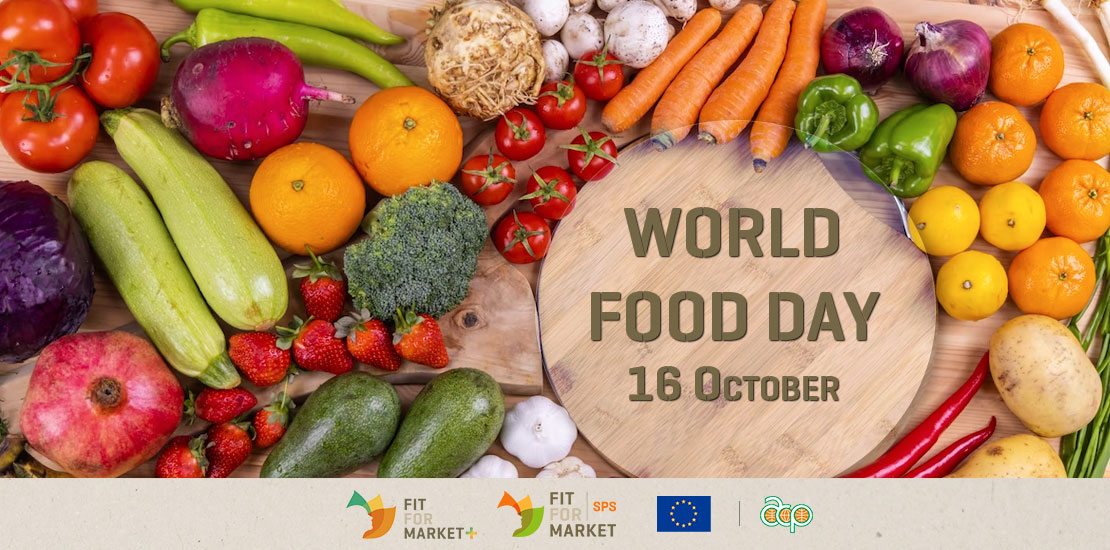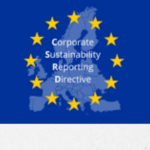#WorldFoodDay: Agrifood SMEs and businesses contribution to leaving no one behind
- 16/10/2022
- Posted by: Gaetan Dermien
- Category: ACP EN, News

The World Food Day 2022 highlights the increasing interlinkages of economies, cultures, and populations with its theme “leave no one behind”. Global health, planet and political challenges call for global solutions that include guaranteeing the access and availability of nutritious food, as well as reducing food losses and waste. These solutions should specifically be designed and adapted to rural populations as they are the most vulnerable to food and climate crises, with 80 % of the extreme poor living in rural areas.1
The agrifood sector is of outmost importance for rural areas in terms of employment, food and nutrition security, not only for end-consumers but throughout the entire value chain (eg at supply, harvesting, processing, conditioning, transporting and marketing levels). Local Micro, Small and Medium Enterprises (MSMEs) are essential contributors to making nutritious and safe foods available, accessible and affordable and work hand in hand with smallholders. MSMEs also contribute to improving the quality and availability of local food, and ensuring high safety and quality standards. Thus, agrifood MSMEs play a key role in tackling the ‘triple burden’ of malnutrition: (i) undernutrition (underweight, stunting and wasting), (ii) micronutrient deficiencies, and (iii) overweight and obesity, creating employments for all and contributing to food security for the most vulnerable. At the same time, MSMES are the backbone of most economies enabling access to capacity building, finance, innovation and technologies.
COLEACP, through the implementation of programmes such as Fit For Market SPS, Fit For Market Plus and NExT Kenya, is committed towards strengthening the ACP agri-food sector to reduce poverty, improve food security and food safety. To leverage impact, COLEACP and key partners have jointly developed series of activities aiming at showcasing innovations and successes of farmer-led businesses and MSMEs. In November 2020, the Innovations Series was launched by the Pan-African Farmers’ Organization (PAFO) and COLEACP to share best practices from African entrepreneurs, farmers, agripreneurs and SMEs to support others to embrace the unprecedented opportunities offered by local, regional and export markets. In June 2021, the Inter-American Institute for Cooperation on Agriculture (IICA) and COLEACP launched the Caribbean Agrifood Business Series aiming at presenting innovative and successful Caribbean farmer-led businesses and SMEs contributing towards a more sustainable and resilient agriculture sector in the Caribbean region. Both series focus on innovations across value chains in production methods, access to markets and product development, with a focus on value addition, technologies including digital solutions, nutrition and circular economy.
While food production must keep the pace with increasing demand, equitable food access and adequate food utilization must be ensured as there are significant inequalities in nutrition outcomes within countries and populations.2 Healthy diets are out of reach for around 3 billion people, especially the poor, in every region of the world in 2019.3 The contribution of fruit and vegetables to nutrition is one of the topic of the Fruit and Vegetables Industry Series launched in September 2021 by COLEACP and the OECD Fruit and Vegetables Scheme4 of the Trade and Agriculture Directorate. The series highlights the significance of the fruit and vegetable sector and shares knowledge of markets and operators working in local and export markets, including by presenting successes and innovations of private sector operators across the EU and Southern countries and lessons learned.
In addition to joint activities developed with partner organisations, COLEACP supports producers, entrepreneurs, consultants, technicians and all stakeholders in the agricultural and food system by providing continuous capacity building, training and technical assistance to promote more equitable and inclusive value chains and ensure that no one is left behind.
1 Castañeda, Andrés & Doan, Dung & Newhouse, David & Nguyen, Minh Cong & Uematsu, Hiroki & Azevedo, João Pedro, 2018. “A New Profile of the Global Poor,” World Development, Elsevier, vol. 101(C), pages 250-267.
2 IFPRI. 2020 Global Nutrition Report.
3 FAO. The State of Food Security and Nutrition in the World, 2021.
4 OECD Fruit and Vegetables Scheme promotes international trade through the harmonisation of implementation and interpretation of marketing standards. https://www.oecd.org/agriculture/fruit-vegetables/
This communication is supported by Fit For Market SPS and Fit For Market Plus programmes, implemented by COLEACP within the Framework of Development Cooperation between the Organisation of African, Caribbean and Pacific States (OACPS) and the European Union.




